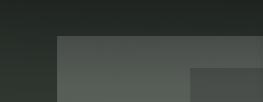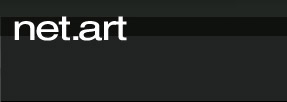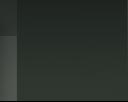








Trevor Reynolds, Manager "
®™ark
provides me with an outlet for those feelings I can't express on the job. My
investment in ®™ark is truly a win-win situation."
Veva Edelson, Owner, Firefly Restaurant
"As a successful restaurateur, I have been approached by investment
managers many times. But I tell them I'm not interested in the stock market. I
make my investments in culture. ®™ark."
You are part of the rising dot-com revolution.
Whether in the ongoing chronicle of the new economy in The New York Times
or Le Monde, your profile rubs off on your hands every morning as you
thumb through the newspaper on the way to work (Damn that cheap ink! If only you
could take the e-version of the paper with you for that morning subway ride).
Most probably you are an urban dwelling, late twenty-something with
undergraduate degree from a decent university under your belt, and perhaps even
a little graduate school (are you still harboring remorse for that dissertation
on the Formation of the Decadent Subject in Victorian Literature? As if you ever
believed that was going be your "real job" anyway). Finally comfortable enough
to live without a roommate in a one-bedroom apartment in Tribecca or in a funky
duplex near the Canal-Saint-Martin, for you, disposable income is finally not an
issue. In addition to the multitude of hi-tech gadgets - Palm Pilot, WAP,
portable DVD player - that fill your messenger bag, you can now afford the
two-week holiday in Tibet (makes those yoga lessons much more authentic and
necessary), and still have money left over to burn a hole in your pocket at the
end of the fiscal year. Without wanting to be too conservative, let's ask the
tough question: where should your hard-earned investment potential go?
Searching for a solution that is both financially and socially rewarding,
the usual E-trade options already seem to lack speculative ambition.
Fished from the polluted seas of the dot com mania, ®™ark might have a solution for you.
Before you click back to the hard-core
financial pages on your local server, perhaps ®™ark's different
investment strategies should be taken seriously. As an anonymous collective that
has existed since the early 1990s, ®™ark is a real, multinational
corporation run over the information super highway (an expression that already
sounds outdated). Designed with a sense of sobriety fit for a Protestant
minister, the first piece of information on the website's FAQ page gives the
definition of its corporate ethos :
" Just as ordinary corporations are
solely and entirely machines to increase shareholder wealth (often at the
expense of culture and life) so ®™ark is a machine to improve its
shareholders' culture and life (sometimes at the expense of corporate
wealth)."
This deceptively simple proposal might seem like old hat to
left leaning, art world veterans. Capitalist ideology has long been public enemy
number one-and the internet is not the first forum for artist-lead protests of
corporate culture. The period spanning the late sixties through the early
eighties became a hot bed for various forms of institutional critique driven to
unveil the exploitative, hegemonic practices of corporate America and its
negative impact on the socio-political field. Yet while the crusades of Hans
Haacke and Martha Rosler led the way for overtly oppositional political content
in art, their practices essentially utilized an overly simple mechanism of
revelation. Their work was analogous to pulling back the Wizard of Oz's curtain
to expose "hidden" networks of power that fuel Capitalism's negative impact on
our everyday reality. While their efforts were well intentioned, the effects of
such aesthetico-political agendas were confined to the insulated and ultimately
low-risk spaces of the gallery or museum.
While somewhat indebted to this artist-activist model, ®™ark has been able to up the stakes. Beyond symbolic denunciation or ordinary forms protest, their subversive and speculative practices are extended into the realm of concrete actions as opposed to an art world dramaturgy of criticality and political activism. By exploiting the legal shields of individual anonymity under corporate law and combining it with a high-profile public identity supported by the mass communication potential of the internet, ®™ark has successfully crossed the safety of the art world's borders to make interventions in the corporate sphere. Like any other investment website, the core of the ®™ark is structured in three main parts- a portfolio that showcases successful cultural "earnings", an interactive database used to generate, track and speculate on a range of mutual funds (®™ark's designation for unrealized projects for sabotage), and a selection of promotional corporate materials (books, videos, posters, and power point presentations).
Potential investors - investment can either be in the form of intellectual or financial capital - should indeed be impressed with ®™ark's track record. Recounted on the nightly news of every major television station in the US, its first high-profile act of worker-based sabotage in 1993 under the name The Barbie Liberation Organization, was enacted by funneling $8,000 to a group that switched the voice boxes of 300 talking GI Joe and Barbie Dolls. The veterans' group that provided the money used ®™ark to displace its liability for the action. Since then, ®™ark investors have funded as many as twenty headline making interventions from releasing an album entitled Deconstructing Beck, a collection of brilliant but allegedly illegal re-samplings of Beck, produced by Illegal Art with the help of $5,000 gathered by ®™ark from anonymous donors to creating a parodic yet credible presidential campaign website GWBush.com that managed to provoke an attack on their first amendment rights by the Republican candidate. All of these diverse projects are funded using hard cash collected through their corporate mutual funds and are affiliated through a shared credo: "®™ark is a market-driven system, and any idea that meets the bottom line criterion of attack without physical injury."
Artists, activists, terrorists, or just simply
new economists, what underlies ®™ark is a clear understanding of the
fundamental engine that is driving the internet revolution: "radical pragmatism
(or perhaps pragmatic radicalism?)".(1) A critical understanding of the new
economy from outside the popular press - in progress daily on e-mail discussion
forums such as Nettime - are founded on the conceit that old forms of
leftist media theory and practice are obsolete and even dangerous to any
effective resistance to the "system". As philosopher and frequent Nettime
participant Manual De Landa has noted,
" Whether one is using the
conceptual machinery of Adam Smith or Karl Marx (or any combination of the two),
whether one sees in the recent commercialization of the internet a new
"invisible hand" that will magically benefit society, or whether one sees in
this commercialization a "commodification" of the net which will magically ruin
society, one is still trying to understand what is a radically new phenomena in
terms of obsolete categories belonging to bankrupt systems of
thought."(2)
Through a complex web of activities, ®™ark has
started to attempt to put into practice economic theories that extend beyond
Marxian terms. With an understanding of e-business that is outside of two
dominant poles-the euphoric assertion of the "utopic potential for digital free
enterprise" or the disavowal of the net as the "latest expression of
international capitalism"- ®™ark are actively working towards dismantling
oppressive (corporate) structures not by opposing the system but playing by (not
simply parodying) its own rules. A fully-functioning brokerage who deals in the
concurrent generation and subversion of intellectual property, ®™ark is
able to cunningly jab the heart of Capital without turning off its speculative
engines-turning pragmatism against pragmatism on the highly contested on-line
battlefield. ![]()
(1) Taken from the introduction to Read Me! Technology, Culture, Politics filtered by Nettime. Brooklyn, New York : Autnomedia, 1999. Nettime is an e-mail discussion list that can be contacted via: nettime@bbs.thing.net
(2) Manuel De Landa. "Subject : Markets,
Antimarkets, and the Internet", Read Me! Technology, Culture, Politics filtered
by Nettime. Brooklyn, New York: Autnomedia, 1999. P. 88
|
The Art of Speculation... | |
|
Investing in Intellectual Capital with ®™ark |
by Alison M. Gingeras |